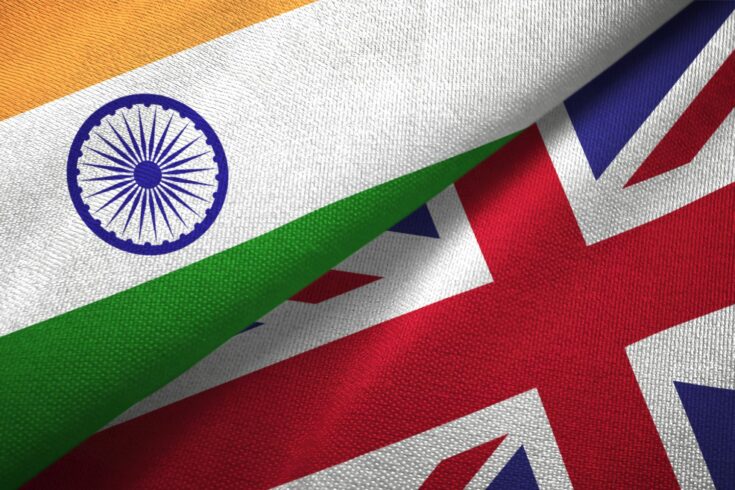Four research partnerships have been funded to provide a deeper understanding of COVID-19 severity in South Asian populations located in India and the UK.
The projects, worth £5 million, will be funded in partnership between India’s Department of Biotechnology (DBT) and UK Research and Innovation’s (UKRI) Fund for International Collaboration.
Through the UK-India COVID-19 Partnership Initiative, DBT and UKRI will support world-leading UK-India research teams.
Understanding the pandemic
The successful projects aim to understand the pandemic through the study of related ethnic groups in different environments in both countries.
These projects have the potential to deliver public health impacts in mitigating the severity of the COVID-19 in both the UK and India.
Announcing these new joint projects, UKRI International Champion, Professor Christopher Smith said:
The COVID-19 pandemic demonstrates the vital role of international science and innovation partnerships in collecting information, sharing knowledge and experiences and developing rapid solutions to tackle worldwide problems.
These four new joint collaborative research projects build on the strong research and innovation links between the UK and India, bringing together world-leading research teams who are focused on mitigating the severity of COVID-19 in South Asian populations in the UK and India.
Decade long partnership
Dr Renu Swarup, Secretary of India’s DBT said:
The fast track UK-India COVID-19 Partnership Initiative has been possible because of more than a decade long close association between India and the UK for biotechnology research and innovation.
This partnership builds on the joint strengths of the Indian and UK research communities and I am very pleased that these high-quality projects have high potential for direct impact in the form of improved understanding of a rapidly evolving pandemic.
These projects are likely to offer evidence-based solutions towards mitigating the severity of the outbreak in both the UK and India.
This partnership also exemplifies the spirit of global partnerships in addressing global issues.
Further information
Funded projects
Details of the selected projects are as follows:
Variation in innate immune activation and cardiovascular disease risk as drivers of COVID-19 outcome in South Asians in UK and India
Dr Annapurna Vyakarnam, Indian Institute of Science and Dr Adrian Hayday, King’s College London and Francis Crick Institute, London.
This research intends to prove why COVID-19 affects South Asians in different countries in different ways. It will support the rapid identification of information that may allow:
- development of new prevention steps
- more targeted monitoring
- potentially new treatments.
This will improve the outcome of COVID-19 in both India and the UK.
CoV-Ind-UK: Prospective investigation of the determinants for COVID-19 outcomes amongst South Asians in India and the UK
Dr Anurag Agrawal, Institute of Genomics and Integrative Biology, and Dr John Chambers, Imperial College London.
This research aims to understand the reasons underlying the increased risk of COVID-19 amongst South Asians. It will generate knowledge that informs interventions to reduce the burden of COVID-19 amongst South Asians who represent 25% of the world’s population.
Explaining the differential severity of COVID-19 between Indians in India and the UK
Dr Giridhara Rathnaiah Babu, Public Health Foundation of India and Dr Sanjay Kinra, London School of Hygiene and Tropical Medicine.
The project aims to generate the first ever like-for-like comparisons between Indian populations in the UK and India. It will rapidly assess whether risk of severe COVID-19 truly differs between Indian populations in the two countries and to test a range of hypothesised explanations.
Role of the oral microbiome and mucosal immunity in COVID-19 disease: diagnostic/prognostic utility in South Asian populations
Dr Priya Kannian, The Voluntary Health Services Hospital, and Dr Stephen Challacombe, King’s College London.
The proposal is based on the hypothesis that mucosal immunity and the microbiome, as reflected in the oral cavity/oropharynx, plays a critical role in susceptibility to, and severity of COVID-19. It explains differences in mortality between similar populations in the UK and India.

